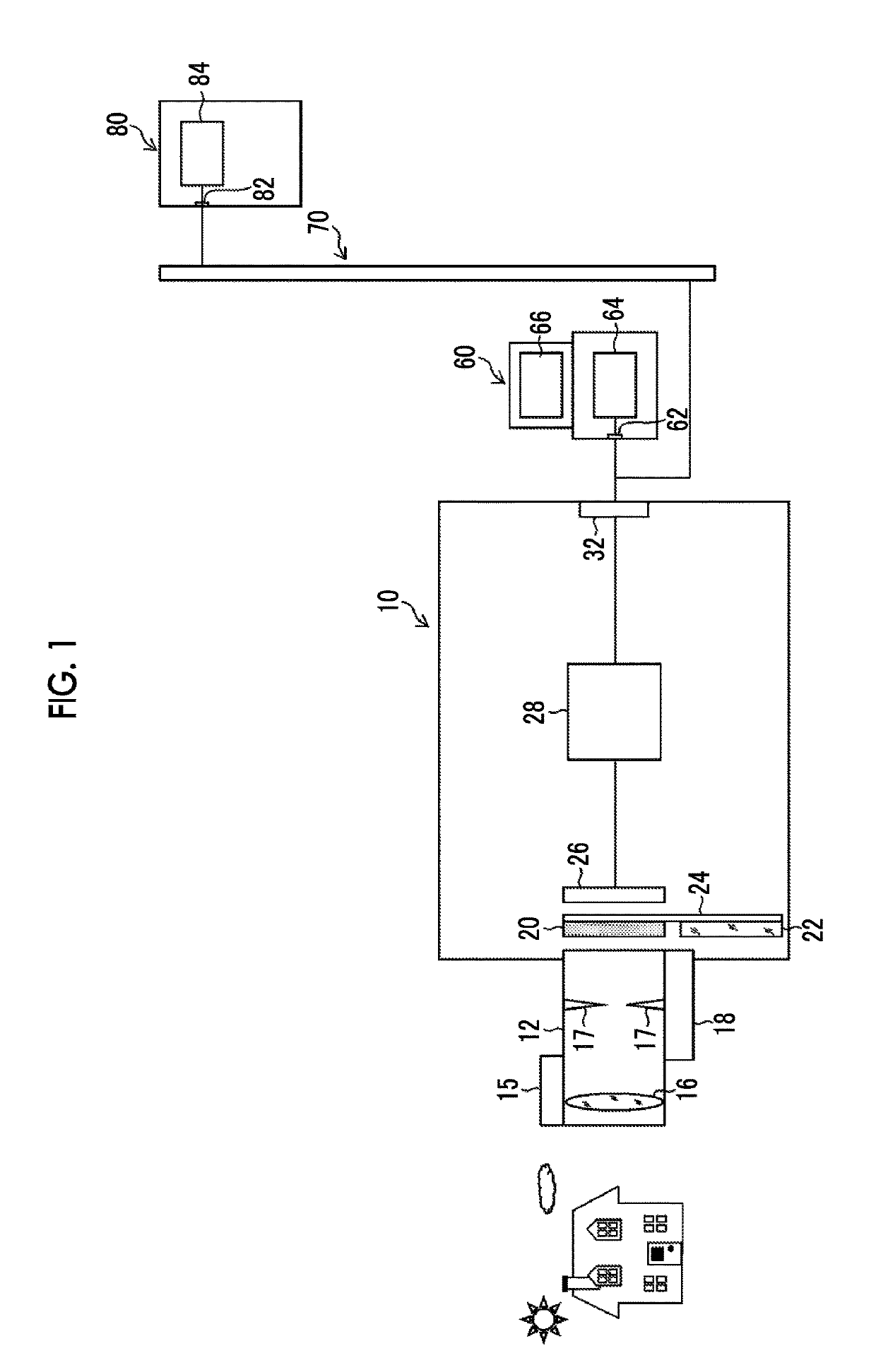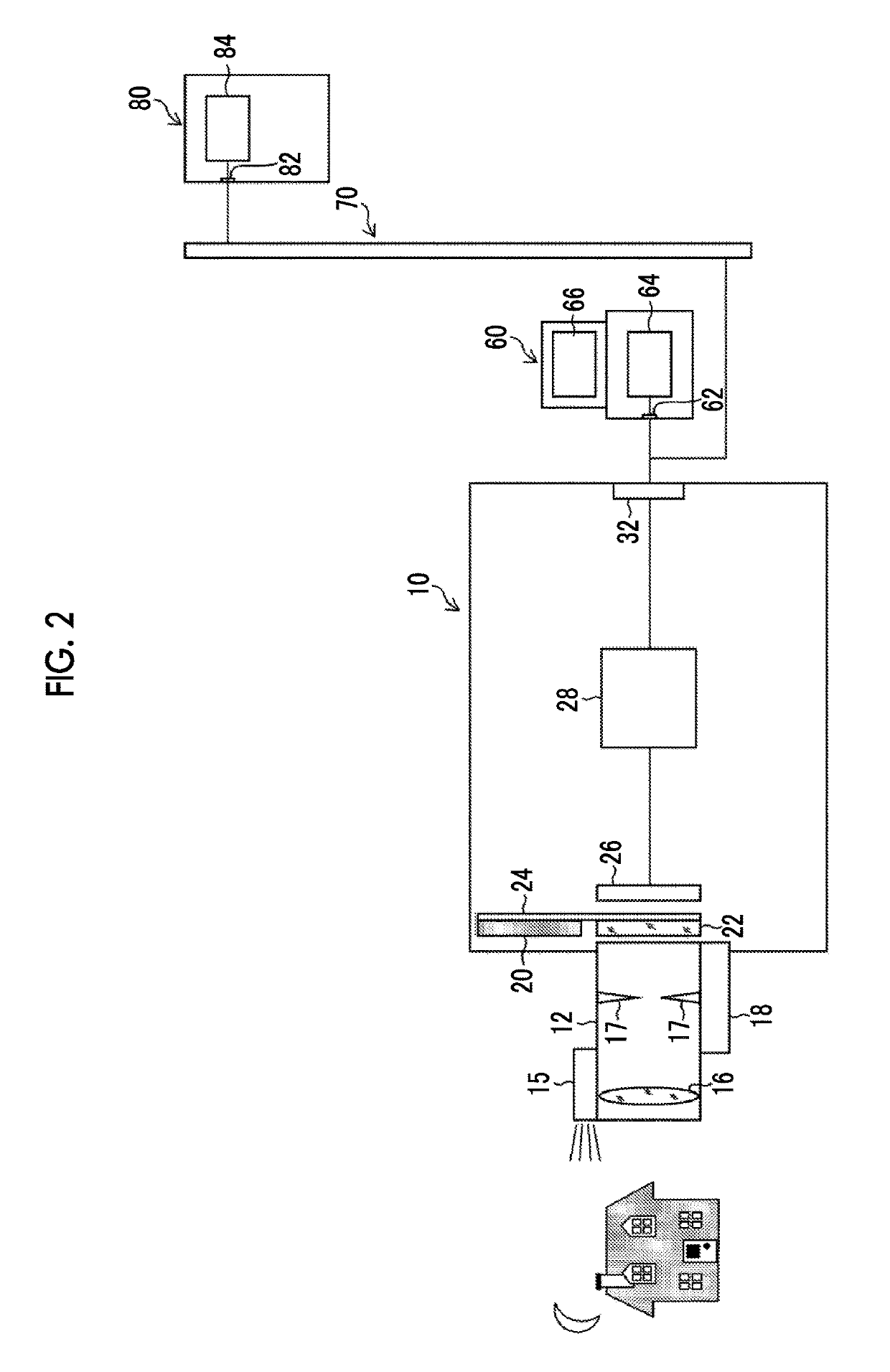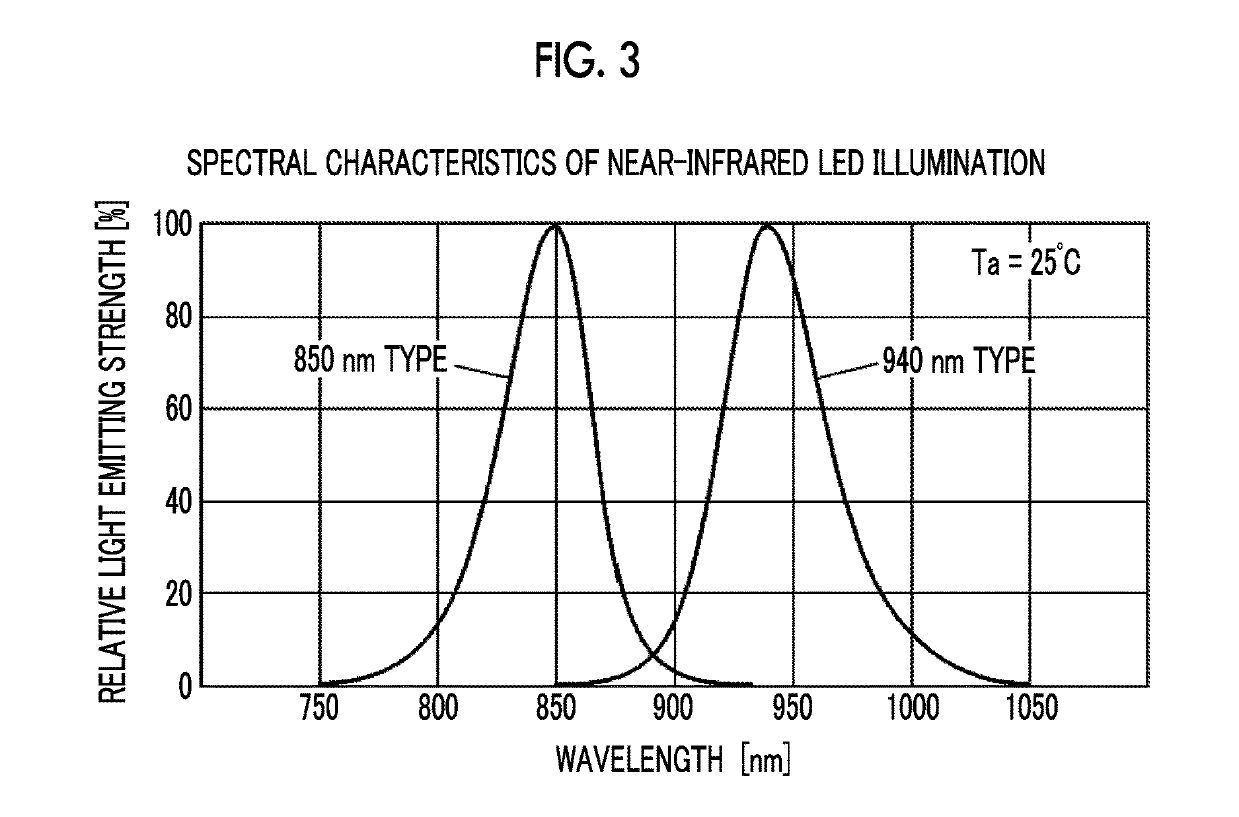Image processing device, imaging device, image processing method, and image processing program
a technology of image processing and imaging device, applied in image enhancement, camera filters, instruments, etc., can solve problems such as inability to satisfactorily perform point image restoration, and achieve good point image restoration
- Summary
- Abstract
- Description
- Claims
- Application Information
AI Technical Summary
Benefits of technology
Problems solved by technology
Method used
Image
Examples
first embodiment
of Image Processing Method
[0115]FIG. 9 is a flowchart illustrating a first embodiment of the image processing method according to the present invention, and illustrates a point image restoration processing operation in the point image restoration processing unit 48 of the first embodiment illustrated in FIG. 7.
[0116]In FIG. 9, the camera controller 28 detects the amount of light (for example, an EV value) of the subject, and discriminates whether the detected amount of light is equal to or larger than a threshold value Th (step S10). In a case where the detected amount of light is equal to or larger than the threshold value Th (“Yes”), the process proceeds to step S12 to switch the imaging mode to the visible light image capturing mode that is an imaging mode during daytime, and in a case where the detected amount of light is smaller than the threshold value Th (“No”), the process proceeds to step S18 to switch the imaging mode to the near-infrared light image capturing mode that is...
second embodiment
of Image Processing Method
[0158]FIG. 13 is a flowchart illustrating a second embodiment of the image processing method according to the present invention, and illustrates a point image restoration processing operation in the point image restoration processing unit 48 of the second embodiment illustrated in FIG. 12. In FIG. 13, steps of performing the same process as that illustrated in FIG. 9 are denoted with the same step numbers, and detailed description thereof will be omitted.
[0159]The image processing method illustrated in FIG. 13 is different in that a process of step S132 is performed in place of the processes of steps S30 and S32 illustrated in FIG. 9.
[0160]In step S132 illustrated in FIG. 13, the first PSF for visible light and the second PSF for near-infrared light are subjected to weighted averaging on the basis of the light amount ratio between the amount of visible light and the amount of near-infrared light detected by the light amount ratio detection unit 160 with res...
third embodiment
of Point Image Restoration Processing Unit
[0161]Next, a third embodiment of the point image restoration processing unit 48 illustrated in FIG. 6 will be described.
[0162]FIG. 14 is a block diagram illustrating a point image restoration processing unit 48 of the third embodiment. The same portions as those in the second embodiment illustrated in FIG. 12 are denoted with the same reference numerals, and detailed description thereof will be omitted.
[0163]The point image restoration processing unit 48 of the third embodiment illustrated in FIG. 14 is mainly different in that a third point spread function storage unit 260 is included in place of the third point spread function generation unit 240 illustrated in FIG. 12.
[0164]That is, the third PSF generated similarly to the third PSF that is generated by the third point spread function generation unit 240 illustrated in FIG. 12 is stored in the third point spread function storage unit 260 in association with the light amount ratio of the ...
PUM
 Login to View More
Login to View More Abstract
Description
Claims
Application Information
 Login to View More
Login to View More - R&D
- Intellectual Property
- Life Sciences
- Materials
- Tech Scout
- Unparalleled Data Quality
- Higher Quality Content
- 60% Fewer Hallucinations
Browse by: Latest US Patents, China's latest patents, Technical Efficacy Thesaurus, Application Domain, Technology Topic, Popular Technical Reports.
© 2025 PatSnap. All rights reserved.Legal|Privacy policy|Modern Slavery Act Transparency Statement|Sitemap|About US| Contact US: help@patsnap.com



